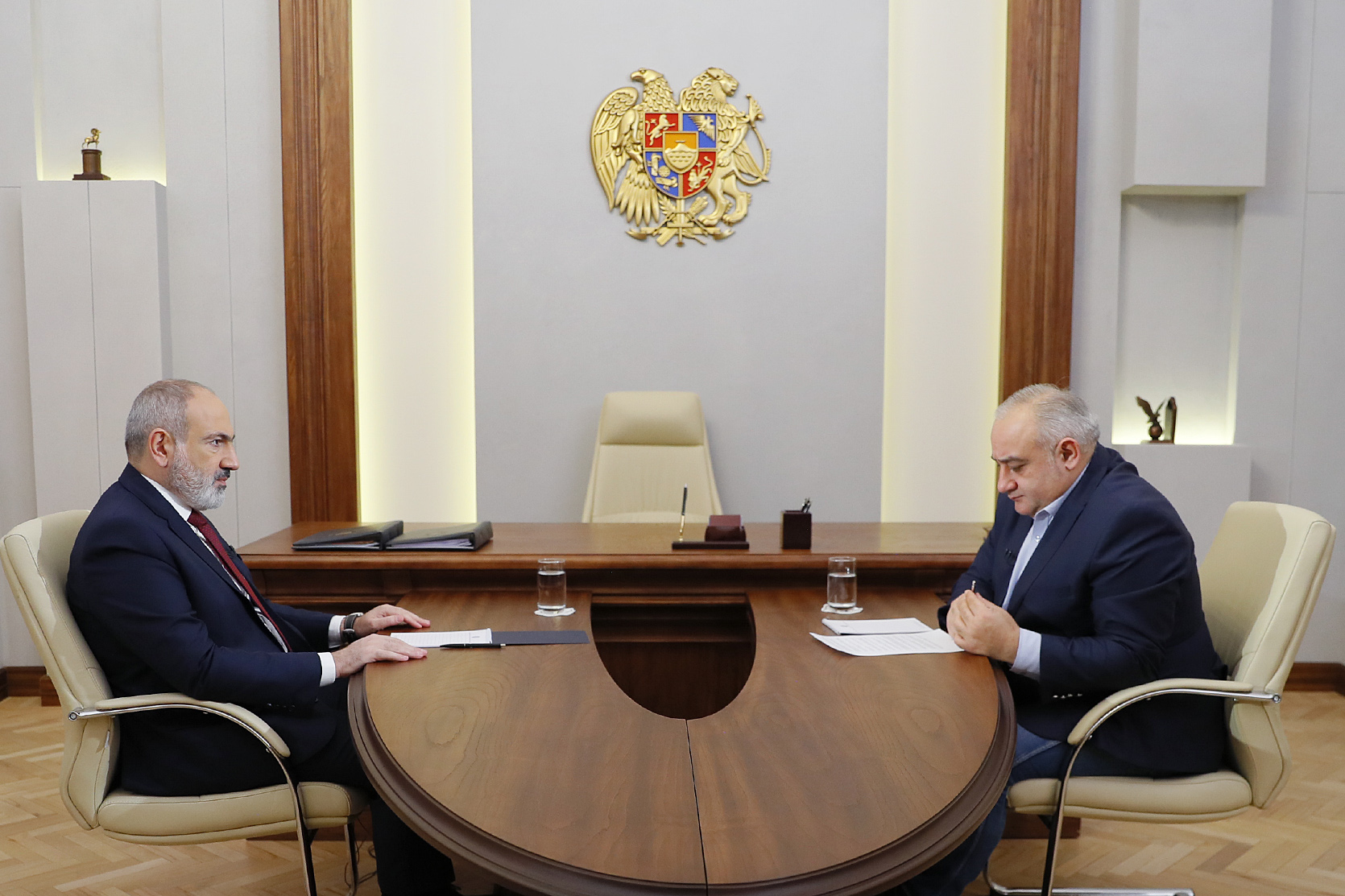[ad_1]
In the 30-Year Negotiation Process Their Was No Viable Solutions for the Nagorno-Karabakh Issue
YEREVAN – Armenian Prime Minister Nikol Pashinyan refuted Russian President Vladimir Putin’s statement on Tuesday, asserting that he was not the first to recognize Nagorno-Karabakh as part of Azerbaijan. Pashinyan pointed out that Putin had done so in November and December 2020, shortly after the conclusion of the 44-day war in the conflict zone.
“These statements by Putin are public and can be found on social networks,” Pashinyan stated in an interview with Armenia’s Public Television.
According to him, these statements contradict the trilateral agreement of November 9, 2020, made by the leaders of Armenia, Azerbaijan, and Russia to end the 2020 autumn war.
Pashinyan also recalled that when Azerbaijan invaded parts of Armenia in 2021, Armenia invoked all possible articles of the CSTO treaty and other earlier-adopted documents, such as the Russian-Armenian Treaty on Friendship and Cooperation. This treaty envisaged military assistance to the parties in case of an invasion of their territories. However, there was no response, which violated the CSTO’s statutes and declared mission.
“I subsequently resigned, and the National Assembly was dissolved. Elections were scheduled for June 20, 2021. During those days, the Russian Foreign Minister visited Armenia and Azerbaijan. There was a high probability that if the Armenian government had reacted differently, the elections would not have taken place, and the Republic of Armenia would have been dissolved,” Pashinyan explained.
He further noted that in February 2022, Russia and Azerbaijan signed a declaration that elevated their relations to a strategic level. This declaration recognized the inviolability of borders and pledged not to take actions conflicting with each other’s national interests. Subsequently, events in Karabakh’s Parukh unfolded when Russian peacekeeping troops in Nagorno-Karabakh failed to prevent Azerbaijani forces from occupying Parukh village, which was within their zone of responsibility. This was a violation of the November 9, 2020 statement, yet there was again no response from Russia.
“Then the Russian co-chair of the OSCE MG, Igor Khovayev, arrived in the region with proposals that called for the postponement of the Nagorno-Karabakh status issue. We agreed, and Khovayev took this document to Baku. Unofficially, Azerbaijan reportedly denied it,” Pashinyan said.
He recalled that following Khovayev’s visit to Yerevan from Baku on September 13, Azerbaijan launched an attack on Armenia.
“Once again, there was no response from Russia and the CSTO, despite our appeals, particularly in terms of security assistance. On October 6, we declared our readiness to make peace with Azerbaijan based on the Almaty Declaration. We aligned our position with what Russia and Azerbaijan had stated in their joint declaration. This was the only way to confirm Armenia’s territorial integrity,” Pashinyan stated.
The Prime Minister emphasized that any proposal for resolving the Nagorno-Karabakh issue through negotiation did not equate to a comprehensive solution to the problem.
“There has never been any agreement on the table that, once signed, would constitute a definitive resolution of the Nagorno-Karabakh issue. All the options that were discussed, including the ‘Madrid Principles,’ assumed a non-resolution of the Nagorno-Karabakh issue,” Nikol Pashinyan pointed out.
According to him, in 1999, there was only one option that, if signed, could be considered a resolution of the Nagorno-Karabakh issue: the exchange of Meghri and Artsakh, where Meghri would be ceded to Azerbaijan, and Nagorno-Karabakh would become part of Armenia.
“This arrangement was specifically designed to keep the Nagorno-Karabakh issue as leverage over Armenia and potentially Azerbaijan,” he added.
“We advocated for lowering the bar because we wanted to align our concept of self-determination with the international community’s ideas on self-determination. This was in 1996 and reflected the ideals of the Lisbon summit,” he emphasized.
[ad_2]
Source link










